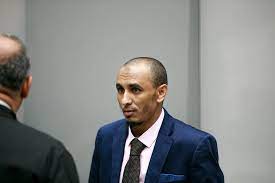APA – Bamako (Mali) – The International Criminal Court (ICC) is preparing to deliver its verdict in the case of Al Hassan Ag Abdoul Aziz Ag Mohamed Ag Mahmoud. The verdict will be delivered on 26 June 2024 at 10 a.m. local time.
Originally scheduled for 18 January 2024, the verdict was postponed due to the health condition of the presiding judge. The hearing will be streamed live on the ICC website.
In this complex case, the ICC will have to decide whether to acquit or convict the accused. To do so, the prosecution will have to prove Al Hassan’s guilt. He will also have the opportunity to appeal the decision, ensuring a fair trial.
Al Hassan is charged with alleged war crimes and crimes against humanity in Timbuktu, Mali. A former member of Ansar Eddine, he is alleged to have been in charge of the Islamic Police Station and associated with the Islamic Tribunal in Timbuktu between 1 April 2012 and 28 January 2013. The charges against him include torture, rape, sexual slavery, forced marriage and persecution.
Since the start of the trial on 14 and 15 July, the prosecution has called 52 witnesses, while the defence has presented 22 witnesses. The legal representatives of the 2196 victims have also called two witnesses.
The presentation of evidence concluded on 8 February 2023, followed by the closing statements of the parties and participants. Oral arguments by the prosecution, the legal representatives of the victims and the defence took place from 23 to 25 May 2023, marking the final stage before the verdict.
Al Hassan is the second Malian jihadist to be tried by the ICC for the destruction of the Timbuktu shrines, a UNESCO World Heritage Site. In 2016, Ahmad Al Faqi Al Mahdi was sentenced to nine years in prison.
He was released in September 2022 after a two-year reduction of his sentence for good behaviour and expressing remorse; his release did not affect the process of compensating the victims through a specially earmarked fund.
Al Mahdi was ordered to pay €2.7 million in reparations as he did not have the means to do so.
The ICC has a funding mechanism to compensate victims, which is fed by voluntary contributions from state parties, foundations and individuals.
MD/ac/lb/as/APA


